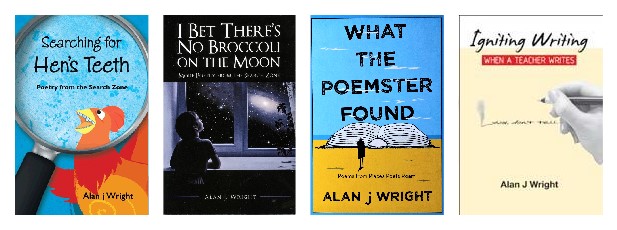The following collection of poems, chants and rhymes is presented for active service in classrooms. They have been successfully presented and performed by teachers and students over a period of time. I trust that you, the reader, will find new and exciting ways to link them into your literacy program. Let's Begin... I remember clearly the chants and rhymes that were part of my school days. "Tip, top, taxi One two three Tip ,top, taxi You're not he ! I still like to tune into the poetry of today's playground people. Children are constantly inventing rhymes and chants and the words they use reflect a poetic thread. Rhyme and rhythm play an active part in many of the games children play. They are part of the performance. The poems included in this post have been chosen because they have shown themselves to be suitable to performance. The presentation may be in a variety of groupings: · whole class · small group · individual.
